Optimal Timing for Shrub Trimming
Proper timing for shrub trimmings ensures healthy growth and maintains the aesthetic appeal of landscaping. The optimal time varies depending on the shrub species and local climate conditions. Generally, trimming is most effective during specific seasons to promote vigorous growth and prevent disease.
Pruning in early spring encourages new growth and helps shape shrubs before the growing season begins.
Light trimming during summer maintains shape and removes dead or overgrown branches to promote healthy development.
Late fall trimming can prepare shrubs for winter but should be minimal to avoid stress during cold months.
Most shrubs should not be trimmed during winter, as cold weather can damage fresh cuts and inhibit growth.
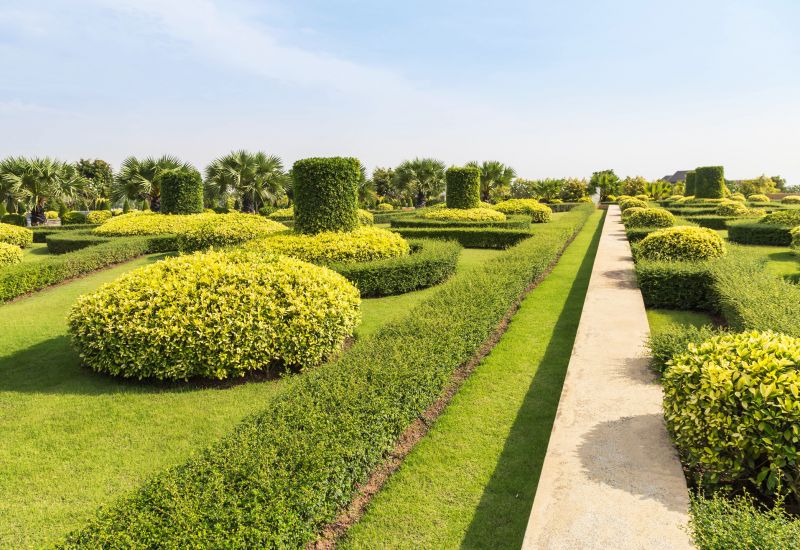
Ways to make Shrub Trimmings work in tight or awkward layouts.
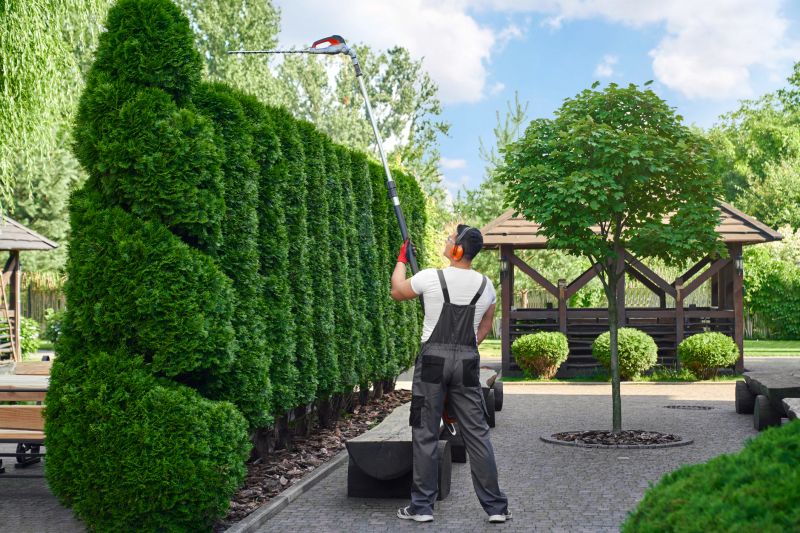
Popular materials for Shrub Trimmings and why they hold up over time.
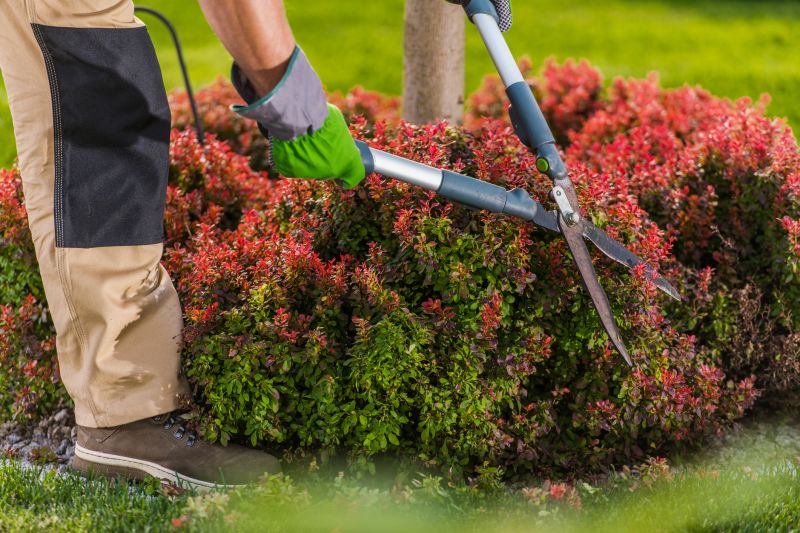
Simple add-ons that improve Shrub Trimmings without blowing the budget.
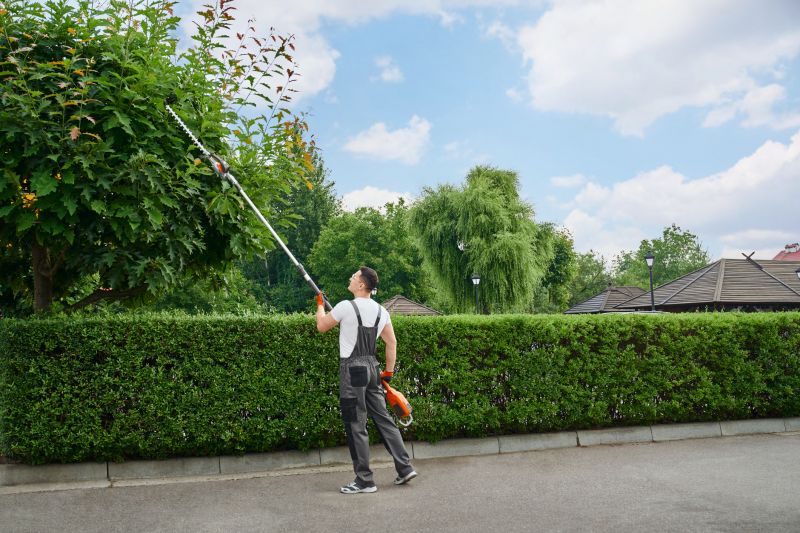
High-end options that actually feel worth it for Shrub Trimmings.
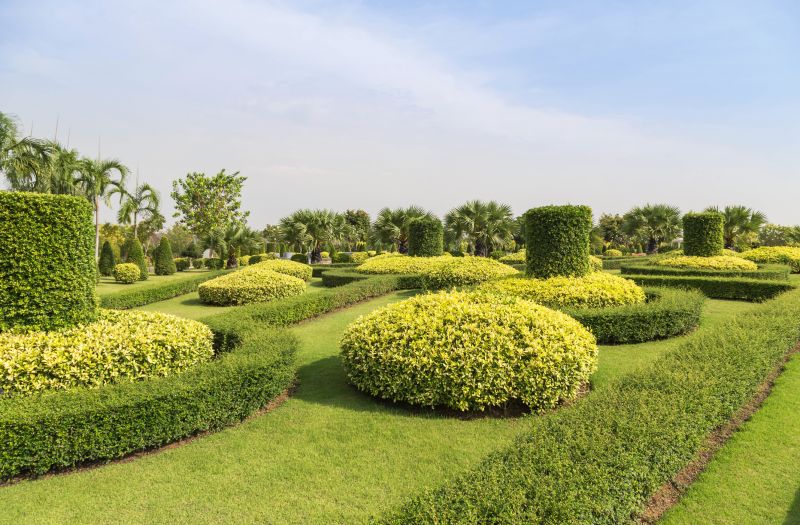
Finishes and colors that play nicely with Shrub Trimmings.
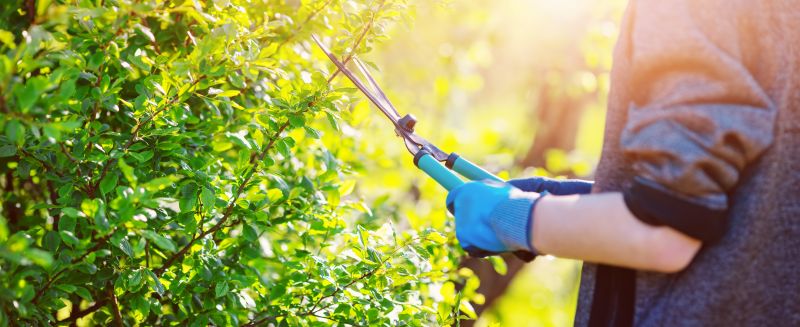
Little measurements that prevent headaches on Shrub Trimmings day.
| Season | Best Practices |
|---|---|
| Spring | Trim before new growth begins to shape shrubs and remove winter damage. |
| Summer | Perform light trimming to maintain shape and remove dead branches. |
| Fall | Limit trimming to prevent stressing plants before winter. |
| Winter | Avoid trimming unless necessary to remove damaged branches. |
Shrub trimmings play a vital role in maintaining the health and appearance of landscape plants. Proper pruning techniques can improve air circulation, reduce disease risk, and encourage flowering or fruiting. The timing of trimming is crucial; incorrect timing can lead to poor growth or damage to the shrub. For example, trimming flowering shrubs right after blooming can prevent the removal of next season's buds, while late-season trimming may expose plants to winter injury.
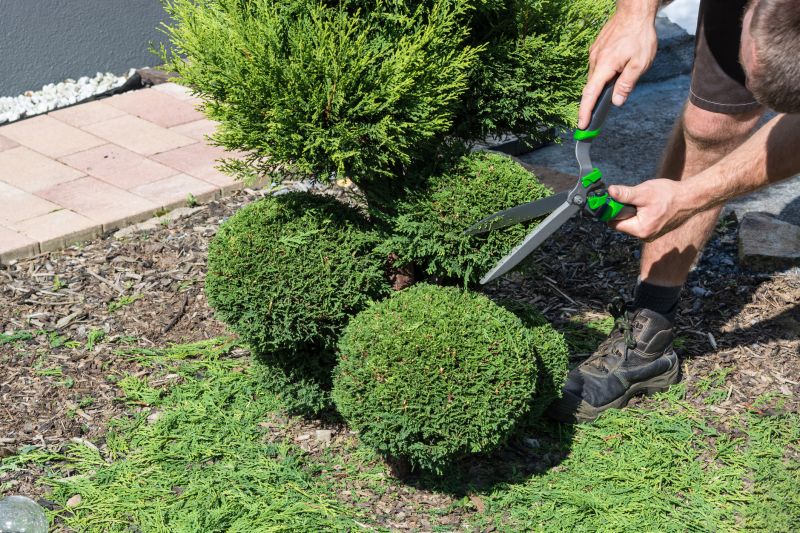
A 60-second routine that keeps Shrub Trimmings looking new.
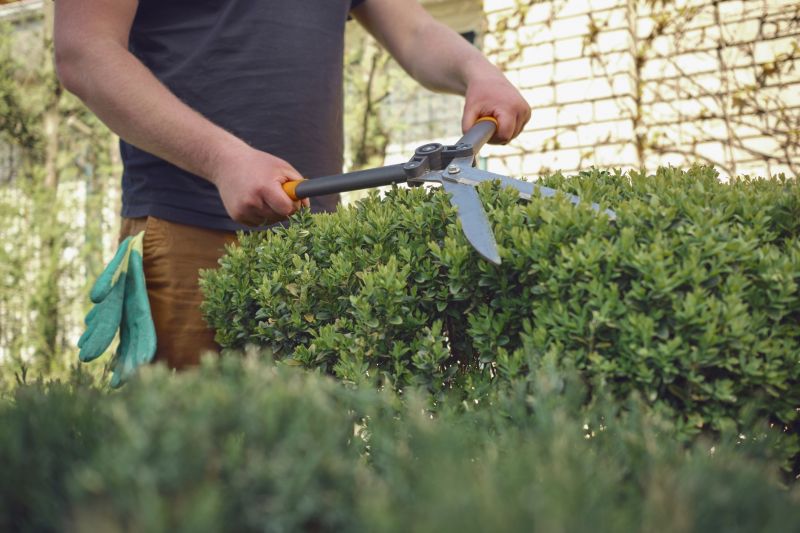
A frequent mistake in Shrub Trimmings and how to dodge it.
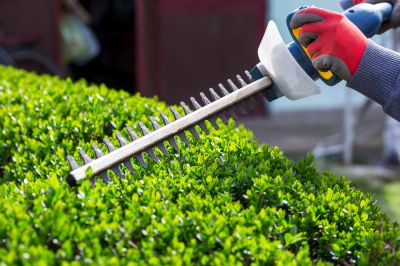
Small tweaks to make Shrub Trimmings safer and easier to use.
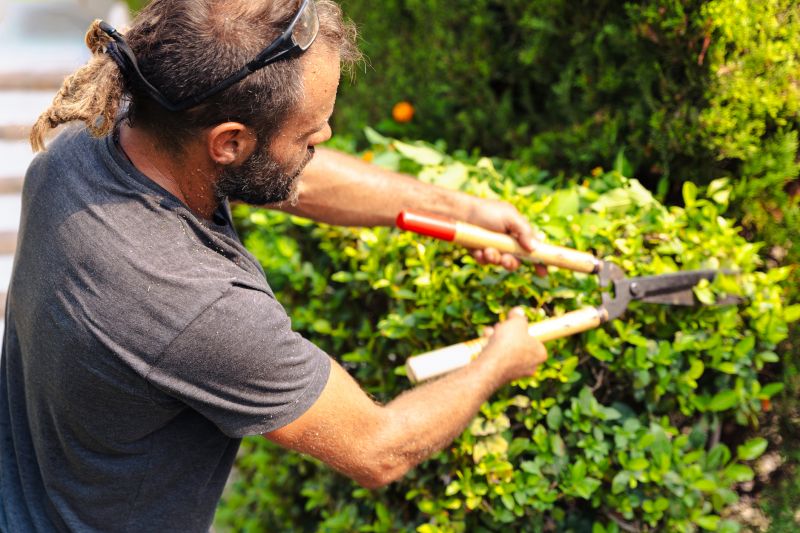
Lower-waste or water-saving choices for Shrub Trimmings.
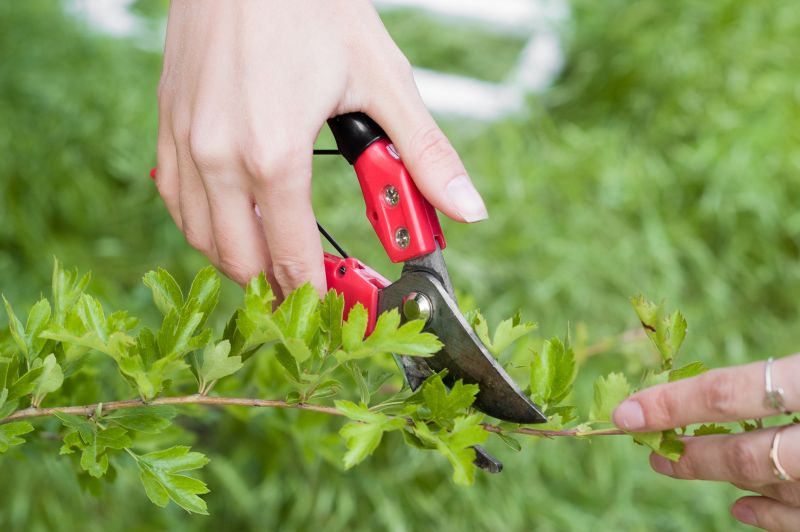
The short, realistic tool list for quality Shrub Trimmings.
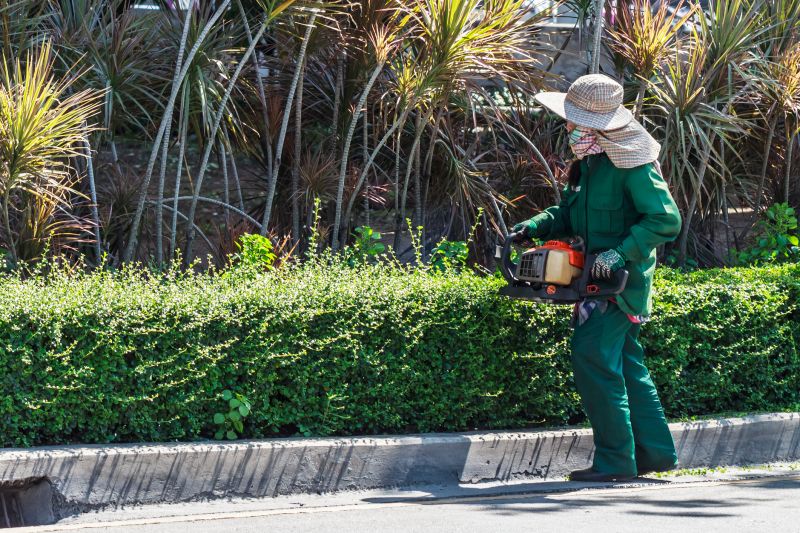
Rough timing from prep to clean-up for Shrub Trimmings.
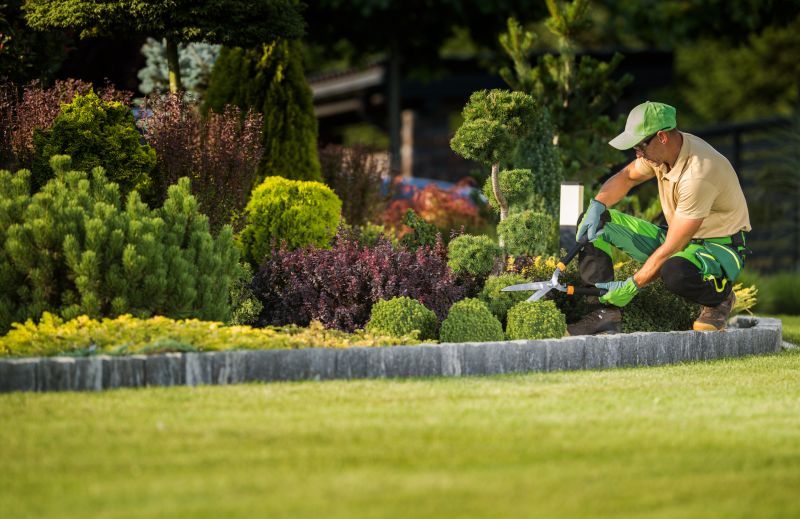
Quick checks and paperwork to keep after Shrub Trimmings.
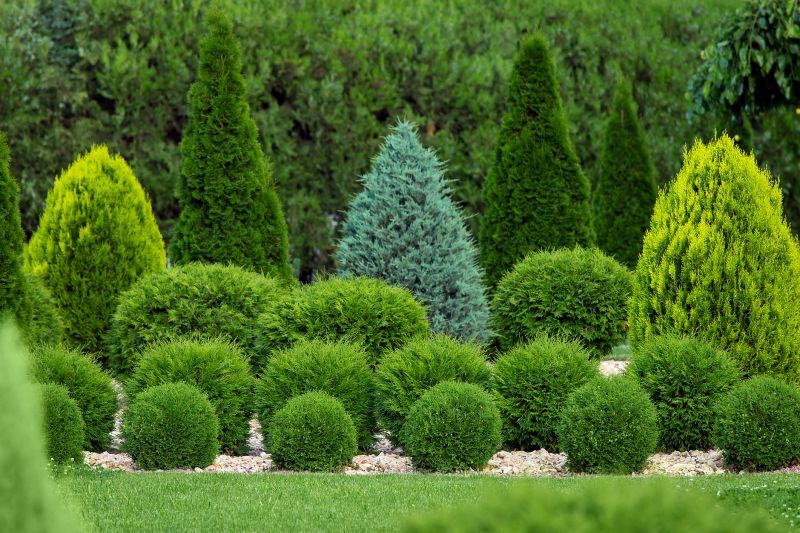
Examples that show the impact a good Shrub Trimmings can make.
Understanding the best timing for shrub trimmings can enhance landscape aesthetics and promote plant vitality. Regular maintenance, aligned with seasonal growth patterns, ensures shrubs remain healthy and visually appealing throughout the year. Proper pruning techniques, combined with knowledge of seasonal timing, can prevent common issues such as disease, pest infestation, and overgrowth.
Enhances plant health, encourages new growth, and maintains desired shape.
Overgrown branches, dead or diseased limbs, and aesthetic concerns indicate trimming is needed.
Different species have specific pruning schedules for optimal results.
Use sharp, clean tools to make precise cuts and reduce plant stress.
Interested in professional shrub trimmings? Fill out the contact form to discuss options tailored to the landscape needs in Brunswick, GA.
